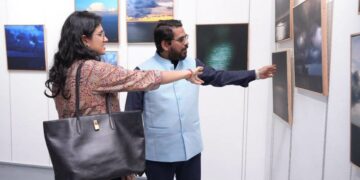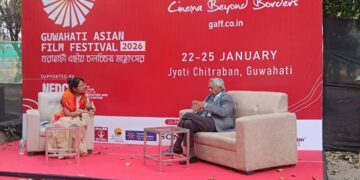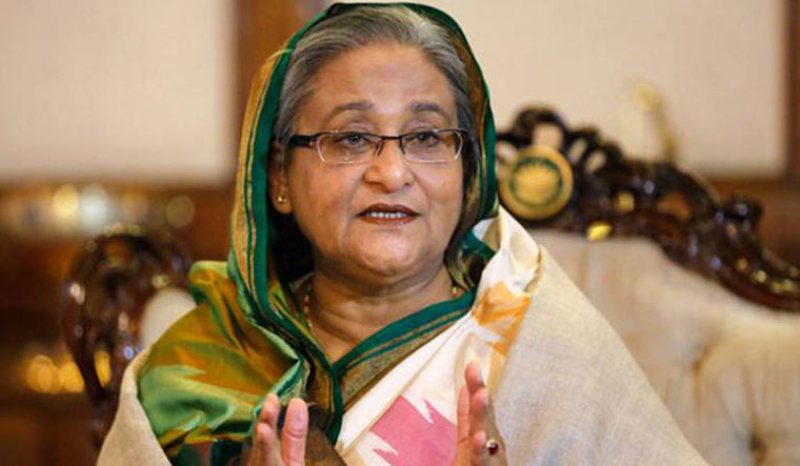By Anindita Ghoshal
On May 16, small bands of Awami League supporters took out flash rallies across at least 30 locations in Dhaka and a few other towns of Bangladesh. These demonstrations were largely defiant in nature – to express their resentment against the May 10 “conditional” ban against the party which was ousted from power in August 2024.
The Muhammad Yunus-led interim regime’s decision to proscribe the Awami League stemmed from demands by a section of students who led the July-August 2024 movement against the then Prime Minister Sheikh Hasina.
The ban, invoked under Bangladesh’s 2009 Anti-Terrorism Act, was imposed nine months after the Yunus government assumed charge on August 8, 2024. It is being seen as a step that adversely impacts Bangladesh’s already fragile democratic fabric which has time and again been subjected to assaults largely – and ironically – by political forces, including the now-proscribed party.
Sheikh Hasina’s ouster in August 2024 was widely expected to usher in a new era of democracy with better governance, fair elections, protection of human rights, and press freedom. That has not happened.
Unkept promise
The democratic values the interim administration promised to restore now appear compromised under the weight of its own authoritarian impulses. On its part, the Bangladesh Nationalist Party (BNP), which had earlier indicated it was not opposed to the Awami League contesting elections, whenever they are held, did a volte face, supporting the ban.
The ban on the Awami League raises serious concerns about unconstitutional practices and democratic backsliding. The proscription, to be in place till Awami League leaders are tried in the International Crimes Tribunal, allows the interim government to outlaw organisations deemed threats to national security.
While the democratic space has severely shrunk in Bangladesh – there is no clarity on when elections will be held there – the media has not been immune to violent attacks and targeted vilification.
Laws such as the 2023 Cyber Security Act (formerly Digital Security Act 2018) continue to be used to suppress dissent, curtail free speech, harass journalists, activists and political opponents. Media offices have been raided by law enforcement agencies, voices of independent bloggers, social media influencers and pro-democracy activists have been muzzled for criticising the interim regime’s alliance with Islamist groups.
Another alarming aspect of the current regime’s conduct is the pattern of deaths in custody and allegations of torture. In its most recent report, Human Rights Watch expressed concern on the imposition of a ban, describing it as an “excessive restriction on fundamental freedoms”.
Political opposition
Bangladeshi political parties such as the BNP and the Jamaat questioned the interim government’s position as the rightful authority to implement the corridor, with geopolitical implications, without taking prior consent of the people or consulting the Myanmar government. Even Army chief General Waker-uz-Zaman stood firmly against the proposed “humanitarian corridor”,
Amid a general sense of disenchantment with the Yunus government, the Awami League’s marginalisation is reflected in the inability of its leaders and supporters, who fled Bangladesh in the wake of last year’s violence to India, to regroup. Hasina has been using social media to interact regularly with party supporters at home, but there has been no visible attempt at recalibrating the party or even shaking up the organisational structure with a view to reform.
Some commentators claim that the Awami League’s inability to get a grip on itself and chart a fresh direction is an outcome of the Yunus regime’s “authoritarian excesses”. The ban on the Awami League has been compounded by an Election Commission decision to suspend the party’s registration, which effectively prevents it from contesting elections, whenever they are held.
The domestic political situation is “fraught”, and almost explosive. Any delay in holding polls will unleash political forces – such as the Islamist outfits – in a country that has not witnessed a truly free and fair elections for nearly two decades.
The Army, considered a powerful stakeholder in Bangladesh’s politics, is in no mood to see a prolonged period of uncertainty. In September last year, Army chief General Waker-uz-Zaman had proposed an 18-month timeline for holding elections, but the Yunus-led interim regime has hemmed and hawed. Some government functionaries have advocated holding institutional reforms before holding elections.
But now the “humanitarian corridor” controversy has given the Army a strong reason to not only ensure Bangladesh’s sovereignty does not get eroded but also hasten the process to hold early elections so it can “return to the barracks”.
Bangladesh’s political firmament reflects a grim paradox – the students’ community unseated Sheikh Hasina for being an authoritarian ruler; by the same token, Yunus’ interim regime is being seen as increasingly dictatorial even as it continues to be supported by the students. There are allegations that the Yunus-led government is intolerant of dissent and is prepared to use disproportionately strong measures.
Far from a transitional administration that was expected to guide the country toward free and fair elections, the interim authority appears to be centralising power. Unless this trend is checked, Bangladesh risks sinking deeper into autocracy.
Anindita Ghoshal is an Associate Professor at the Diamond Harbour Women’s University, Kolkata.
Originally published under Creative Commons by 360info™.















